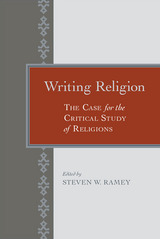2 books about Trost, Theodore Louis

Douglas Horton and the Ecumenical Impulse in American Religion
Theodore Louis Trost
Harvard University Press, 2002
In this first complete biography of Douglas Horton, we are introduced to an extremely important but surprisingly unheralded twentieth-century religious leader. Throughout his life, Horton worked tirelessly for church and world unity under the banner of ecumenism, and his efforts bore fruit in a variety of venues. Horton introduced Americans to the work of Swiss theologian Karl Barth through his translation of The Word of God and the Word of Man (1928). He was the chief architect of the denominational merger that formed the United Church of Christ (1957). He also presided over the transformation of the Harvard Divinity School from a near moribund institution to a distinguished center of religious learning (1955–1959). Toward the end of his life, Horton coordinated the Protestant presence at the Second Vatican Council (1962–1965).
[more]

Writing Religion
The Case for the Critical Study of Religion
Edited by Steven W. Ramey
University of Alabama Press, 2015
In 2002, the University of Alabama's Department of Religious Studies established the annual Aronov Lecture Series to showcase the works of nationally recognized scholars of religion capable of reflecting on issues of wide relevance to scholars from across the humanities and social sciences. Writing Religion: The Case for the Critical Study of Religion is an edited collection of essays that highlights critical contributions from the first ten Aronov lecturers.
Section one of the volume, “Writing Discourses,” features essays by Jonathan Z. Smith, Bruce Lincoln, and Ann Pellegrini that illustrate how critical study enables the analysis of discourses in society and history. Section two, “Riting Social Formations,” includes pieces by Arjun Appadurai, Judith Plaskow, and Nathan Katz that reference both the power of rites to construct society and the act of riting as a form of disciplining that both prescribes and proscribes. The writings of Tomoko Masuzawa, Amy-Jill Levine, Aaron W. Hughes, and Martin S. Jaffee appear in section three, “Righting the Discipline.” They emphasize the correction of movements within the academic study of religion.
Steven W. Ramey frames the collection with a thoughtful introduction that explores the genesis, development, and diversity of critical analysis in the study of religion. An afterword by Russell McCutcheon reflects on the critical study of religion at the University of Alabama and rounds out this superb collection.
The mission of the Department of Religious Studies is to “avoid every tendency toward confusing the study of religion with the practice of religion.” Instruction about—rather than in—religion is foundational to the department’s larger goal of producing knowledge of the world and its many practices and systems of beliefs. Infused with this spirit, these fascinating essays, which read like good conversations with learned friends, offer significant examples of each scholar’s work. Writing Religion will be of value to graduate students, advanced undergraduates, and scholars interested in the study of religion from a critical perspective.
Section one of the volume, “Writing Discourses,” features essays by Jonathan Z. Smith, Bruce Lincoln, and Ann Pellegrini that illustrate how critical study enables the analysis of discourses in society and history. Section two, “Riting Social Formations,” includes pieces by Arjun Appadurai, Judith Plaskow, and Nathan Katz that reference both the power of rites to construct society and the act of riting as a form of disciplining that both prescribes and proscribes. The writings of Tomoko Masuzawa, Amy-Jill Levine, Aaron W. Hughes, and Martin S. Jaffee appear in section three, “Righting the Discipline.” They emphasize the correction of movements within the academic study of religion.
Steven W. Ramey frames the collection with a thoughtful introduction that explores the genesis, development, and diversity of critical analysis in the study of religion. An afterword by Russell McCutcheon reflects on the critical study of religion at the University of Alabama and rounds out this superb collection.
The mission of the Department of Religious Studies is to “avoid every tendency toward confusing the study of religion with the practice of religion.” Instruction about—rather than in—religion is foundational to the department’s larger goal of producing knowledge of the world and its many practices and systems of beliefs. Infused with this spirit, these fascinating essays, which read like good conversations with learned friends, offer significant examples of each scholar’s work. Writing Religion will be of value to graduate students, advanced undergraduates, and scholars interested in the study of religion from a critical perspective.
[more]
READERS
Browse our collection.
PUBLISHERS
See BiblioVault's publisher services.
STUDENT SERVICES
Files for college accessibility offices.
UChicago Accessibility Resources
home | accessibility | search | about | contact us
BiblioVault ® 2001 - 2024
The University of Chicago Press









